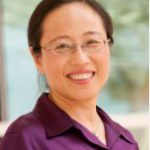by Clayton Warren and Monique Binkley Smith, Vitals contributors
Traditional Chinese Medicine treatments like acupuncture and herbal medicine evolved over thousands of years. TCM practitioners “seek to restore a dynamic balance between two complementary forces, yin (passive) and yang (active), which pervade the human body as they do the universe as a whole. According to TCM, a person is healthy when harmony exists between these two forces; illness, on the other hand, results from a breakdown in the equilibrium of yin and yang,” reports Britannica.com.
Now one San Francisco Bay Area medical center has launched a TCM graduate medical education program to integrate longstanding Eastern traditions with Western medicine.
Sutter Alta Bates Summit Medical Center is the first hospital within Sutter Health’s integrated health system to offer a TCM clinical training program. It’s also the first Sutter hospital to offer acupuncture to patients staying in the hospital and to patients receiving care in clinics.
Dr. Amy Matecki, medical director of Alta Bates Summit’s Center for Integrative Medicine, says integrating acupuncture into the hospital setting fosters mutual respect and understanding of the value of combining Eastern and Western medical treatments with the goal of providing personalized patient centered care.

Amy Matecki, M.D., is the medical director of Sutter Alta Bates Summit’s Center for Integrative Medicine
Dr. Matecki adds that while acupuncture students are immersed in the protocols of a hospital setting through the training program, clinical medicine residents observe first-hand the relief many patients feel after an acupuncture treatment.
Click here to watch a video about Alta Bates Summit Medical Center’s Center for Integrative Medicine
“Acupuncturists need to know Western medical terms and understand the hospital environment to be taken seriously,” notes Dr. Matecki.
The two-year TCM clinical training program prepares students to formulate and prescribe therapies such as herbal medicine, acupuncture and cupping to help patients with a wide variety of conditions and in a variety of care settings including the emergency department, ICU, palliative care, stroke rehabilitation, birthing center, and the radiation oncology and infusion clinics in the Comprehensive Cancer Center.
Currently, the program has four medical school graduates enrolled. Three are first-year residents (also called ‘interns’) and one is a resident in their second year of graduate medical education. Each student undergoes a rigorous interview process to ensure they are a suitable candidate for the program.
“I chose Alta Bates Summit because it was an opportunity for me to be in a modern hospital in a metropolitan area, my hometown,” says resident Jessica Sanchez. “The [staff] has challenged us to grow but they’ve also been incredible mentors. You can just tell it’s a labor of love to make us better leaders in integrative medicine.”
Acupuncture May Offer Relief from Opioid Withdrawal, Side Effects of Cancer Treatment
Alta Bates Summit has offered acupuncture to patients to help with pain management, cancer treatment side effects, and symptoms of opioid withdrawal for over a decade. Along with this treatment option came the need for licensed acupuncturists who could comfortably function in a hospital setting.
“I’m a student of Eastern and Western medicine and my vision is to make acupuncture a mainstream, non-addictive treatment option for pain, offered by trained acupuncturists who are seamless members of the clinical team,” says Dr. Matecki.
Among the many support services available to cancer patients at Alta Bates Summit’s Comprehensive Cancer Center – including nutrition, massage and social work support – acupuncture is offered to help patients cope with the side effects of chemotherapy and radiation, which may include pain, nausea, depression, anxiety and insomnia.
“Acupuncture can help the body relax, and alleviate nausea during chemotherapy sessions,” says Dr. Matecki who specializes in integrative oncology, Chinese herbal medicine and acupuncture, nutritional supplements, women’s health, and pain management. “Since acupuncture is a nonpharmaceutical treatment, it’s also beneficial for people going through chemotherapy and radiation whose bodies are already coping with chemicals and toxins. Mounting evidence shows that acupuncture can be a valuable complementary therapy for a variety of cancer-related symptoms and treatment side effects.”
“In addition to this unique clinical opportunity working side-by-side with a multidisciplinary care team as an integrative medicine consultant, students can also participate in clinical research, including acupuncture and herbal supplements,” says Dr. Matecki.
Oncology Nurse Becomes a Patient, Benefits from Acupuncture
Patients like Esau Zavala-Henriquez appreciate the option to try complementary therapy to help relieve side effects. Zavala-Henriquez is an oncology nurse who works at Alta Bates Summit’s Comprehensive Cancer Center. He’s also a patient. After 18 years supporting people with cancer, last March he was diagnosed with osteosarcoma, a rare type of bone cancer. While undergoing chemotherapy to destroy his cancer cells, Zavala-Henriquez suffered from side effects including nausea, fatigue and nerve damage which caused numbness and throbbing pain in his feet.
“The acupuncture treatment sessions have made a world of difference during intense chemotherapy,” says Zavala-Henriquez. “It helps tremendously in reducing my pain and it makes me feel better.”
Learn more about Holistic and Integrative Medicine at Sutter Health.
Note: This content is not intended to be a substitute for professional medical advice, diagnosis or treatment. Always seek the advice of your physician or other qualified health provider with any questions you may have regarding a medical condition. Never disregard professional medical advice or delay in seeking it because of something you have read on this website.





